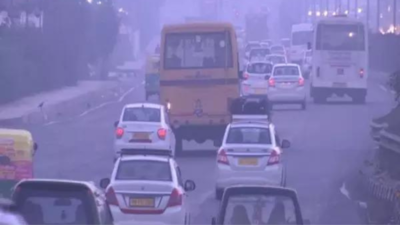‘Misleading’: Centre rejects Swiss firm’s pollution rankings; cites limited government data usage by report | India News

NEW DELHI: The central government on Thursday rejected the Swiss firm’s IQAir report, that had ranked India the fifth most polluted country in the world, citing limited usage of government data in the survey.“However, it must be noted that only 38 per cent of the data sources used in the report are from government agencies. The remaining 62 per cent are from other agencies and include data generated using low-cost sensors,” Union minister of state for environment Kirti Vardhan Singh said responding to a question by Congress MP Pramod Tiwari in the Rajya Sabha.“The data from a variety of monitors and sources, especially low-cost sensors, may have inaccuracies. Moreover, the report uses population-weighted averages based on data from urban monitoring stations, which may not represent the true national average,” the minister said.“In view of these limitations and uncertainties in the data, the ranking of cities and countries may not portray the true picture and could be misleading,” he added.In response to a query on whether air pollution is causing deaths and affecting public health nationwide, the minister said there is no conclusive data to establish a direct link between air pollution and mortality.“Air pollution is one of many contributing factors that can affect respiratory ailments and related diseases. Health is determined by several variables, including food habits, occupational exposure, socio-economic conditions, medical history, immunity, heredity and environmental factors,” Singh said.According to IQAir’s 2024 World Air Quality Report, India ranked as the fifth most polluted country in the world based on air quality data. The report named Byrnihat in Meghalaya as the most polluted metropolitan area globally, with an annual average PM2.5 concentration of 128.2 µg/m³, over 25 times higher than the WHO-recommended limit and more than three times the national standard.





